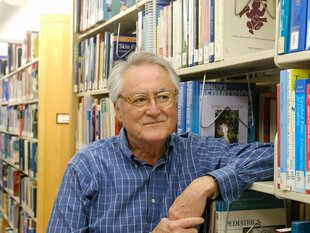Conference 2022
At the Margins of Life:
Exploring Existential Sustainability - Technology, Health and Death
Conference at Lund University November 23–25, 2022
A warm welcome to participate in the conference At the Margins of Life! The aim of the conference is to identify and develop academic research on existential sustainability as an overarching theoretical concept and as applied to three focus areas – technology, health, and death. These areas have been identified as being particularly valuable for the exploration of existential dimensions in relation to the global Sustainable Development Goals of the United Nation Agenda 2030. The conference revolves around the following questions: How can existential perspectives contribute to new understandings of global challenges? What is an existential perspective? How can religion offer valuable resources and insights for creating future sustainable societies?
The presenters are doctoral candidates and researchers in various academic disciplines who are interested in exploring this concept. In addition, different stakeholders will also take part in the conference. We hope that this arrangement will prove to be fruitful for everyone involved. We will dedicate the last session of the conference to discuss possible ways for future collaborations.
Keynote speakers
We are pleased to have two renowned scholars as our keynote speakers:
Allan Kellehear, Clinical Professor at College of Nursing and Health Sciences and The Robert Larner College of Medicine, University of Vermont:
“Existential Sustainability at the End-of-Life: Challenges and Possibilities”
There are several fundamental challenges to designing an inclusive model of existential sustainability for the end of life. These challenges are: (1) That not all end-of-life conduct can be characterized as ‘dying’; (2) That current public health data for place of death do not indicate place while ‘dying’; (3) That current data for cause of death do not indicate the social character of dying, and; (4) That an over-attention to the predicament of dying marginalizes two equally important players at the end-of-life – caregivers and the bereaved. This talk will present a quick overview of these challenges – describing the character of the problem they pose for the design of programs in end-of-life care and for existential sustainability. Finally, I will argue for the necessity of developing civic-style, public health models of end-of-life care for existential sustainability that are interdisciplinary, multisectoral, and spiritually eclectic. This is necessary if we are to address both the pluralism of our modern deathways and the challenge of creating models of care that are capable of being both ‘existential’ and ‘sustainable’.
Noreen Herzfeld, Nicholas and Bernice Reuter Professor of Science and Religion, St. John’s University and the College of St. Benedict:
“The Banality of Technological Evil”
Computer technology, as opposed to traditional manufacturing, has long been labeled a “clean” technology. However, computing actually consumes a vast amount of resources and is ecologically destructive in multiple ways. Its ecological footprint is hidden behind banal terminology, metaphorical thinking, and business plans that promote addictive and unnecessary usage.


